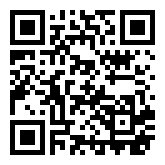Pages:
27-46
Receive Date: 2026/02/09
Accept Date: 2026/02/09
Abstract:
The foundations and infrastructures of humanities have a decisive role in the formation of those disciplines of knowledge. One set of those foundations is anthropological, because the researcher's adopted approach decides many issues (such as the topic, method, and aim) in humanities.
In what follows, the author addresses Allameh Misbah Yazdi's view on the role of free will in the Islamization of the above-mentioned disciplines of knowledge through a descriptive-analytic method.
In a nutshell, this foundation plays the major role in the expansion or confinement of topics issues and aims of those disciplines of knowledge, and in creating, management, change, advice, explanation, analysis, prediction, amendment, reinforcement, evaluation, observing the actions in all disciplines connected with man's actions.
چکیده و کلیدواژه فارسی (Persian)
Title :نقش باور به اختیار در اسلامیسازی علوم انسانی از نگاه علامه مصباح یزدی*
Abstract:
مبانى و زیرساختهاى علوم انسانى در شکل دهی علوم یادشده تأثیر بسزایى دارند. یک دسته از این مبانی انسان شناختی است؛ زیرا نوع نگاه محقق به انسان، مسائل زیادى (از قبیل موضوع، روش و هدف) را در علوم انسانى تعیین می کند. این مقاله به روش توصیفی ـ تحلیلی به نقش «اختیار» در اسلامی سازی علوم یادشده از نگاه علامه مصباح یزدی پرداخته است. حاصل آنکه این مبنا در توسعه و تضییق موضوعات، مسائل و اهداف این علوم و نیز در ایجاد، مدیریت، تغییر، توصیه، تبیین، تحلیل، پیش بینی، اصلاح، تقویت، ارزش گذاری و پایش کنش ها در همه علوم مرتبط با کنش های انسان نقش اصلی دارد.
References:
- ابنخلدون، عبدالرحمن، 1978م، مقدمه ابنخلدون، بيروت، دار القلم.
- ابنفارس، احمدبن زكريا، 1404ق، معجم مقاييس اللغة، قم، مكتب الاعلام الاسلامي.
- تهانوي، محمدعلي، ۱۹۹۶م، موسوعة کشاف إصطلاحات الفنون و العلوم، بيروت، مکتبة لبنان ناشرون.
- جمعي از نويسندگان، 1397، مباني علوم انساني اسلامي از ديدگاه آيتالله مصباح يزدي، قم، مؤسسة آموزشي و پژوهشي امام خميني.
- جوهرى، اسماعيلبن حماد، 1376ق، الصحاح: تاج اللغة و صحاح العربية، بيروت: دار العلم للملايين.
- دبيرخانه همايش مباني فلسفي علوم انساني، 1389، مباني فلسفي علوم انساني (گفتوگوها)، قم، مؤسسة آموزشي و پژوهشي امام خميني.
- راغب اصفهانى، حسينبن محمد، 1412ق، مفردات ألفاظ القرآن، بيروت، دار الشاميه.
- رجبي، محمود، 1379، انسانشناسي، قم، مؤسسة آموزشي و پژوهشي امام خميني.
- رجبي، محمود، 1381، تاريخ تفکر اجتماعي در اسلام، تهران، سمت.
- سروش، عبدالکريم، 1357، فلسفه تاريخ، تهران، حکمت.
- شريفي، احمدحسين، 1393، مباني علوم انساني اسلامي، تهران، آفتاب توسعه.
- شريفي، احمدحسين، 1400، «علم ديني در نگاه علامه مصباح: مواجهه سهسطحي با علوم انساني»، صدرا علوم انساني اسلامي، سال دهم، ش 37، ص 33ـ74.
- شولتز، دوان، 1387، نظريههاي شخصيت، ترجمة يوسف کريمي و همکاران، تهران، ارسباران.
- طباطبائي، سيدمحمدحسين، 1416ق، نهاية الحکمة، قم، جامعة مدرسين.
- طباطبائي، سيدمحمدحسين، بيتا، اصول فلسفه و روش رئاليسم، تهران، صدرا.
- طريحى، فخرالدين، 1375، مجمع البحرين، تهران، مرتضوي.
- گروهي از نويسندگان، 1390، فلسفه تعليم و تربيت اسلامي، زيرنظر آيتالله محمدتقي مصباح يزدي، تهران، مؤسسة فرهنگي مدرسان برهان.
- مصباح يزدى، محمدتقى، 1391الف، جامعه و تاريخ از نگاه قرآن، قم، مؤسسة آموزشي و پژوهشي امام خميني.
- مصباح يزدى، محمدتقى، 1391ب، فلسفه اخلاق، تحقيق و نگارش احمدحسين شريفي، قم، مؤسسة آموزشي و پژوهشي امام خميني.
- مصباح يزدى، محمدتقى، 1378، آموزش فلسفه، تهران، اميركبير.
- مصباح يزدى، محمدتقى، 1384، نقد و بررسي مکاتب اخلاقي، تحقيق و نگارش احمدحسين شريفي، قم، مؤسسة آموزشي و پژوهشي امام خميني.
- مصباح يزدى، محمدتقى، 1391ج، معارف قرآن: خداشناسي، كيهانشناسي، انسانشناسي، قم، مؤسسة آموزشي و پژوهشي امام خميني.
- مصباح يزدى، محمدتقى، 1391د، اخلاق در قرآن، تحقيق و نگارش محمدحسين اسکندري، قم، مؤسسة آموزشي و پژوهشي امام خميني.
- مصباح يزدى، محمدتقى، 1391هـ .، نظريه سياسي اسلام، قم، مؤسسة آموزشي و پژوهشي امام خميني.
- مصباح يزدى، محمدتقى، 1392الف، حقوق و سياست در قرآن، قم، مؤسسة آموزشي و پژوهشي امام خميني.
- مصباح يزدى، محمدتقى، 1392ب، انقلاب اسلامي و ريشههاي آن، تحقيق و نگارش قاسم شباننيا، قم، مؤسسة آموزشي و پژوهشي امام خميني.
- مصباح يزدى، محمدتقى، 1392ج، رابطه علم و دين، تحقيق و نگارش علي مصباح، قم، مؤسسة آموزشي و پژوهشي امام خميني.
- مصباح يزدى، محمدتقى، 1392د، انسانشناسي در قرآن، تنظيم و تدوين محمود فتحعلي، قم، مؤسسة آموزشي و پژوهشي امام خميني.
- مصباح يزدى، محمدتقى، 1394، حکيمانهترين حکومت، تحقيق و نگارش قاسم شباننيا، قم، مؤسسة آموزشي و پژوهشي امام خميني.
- مطهري، مرتضي، 1369، فلسفه تاريخ، تهران، صدرا.
- معين، محمد، 1386، فرهنگ معين، تهران، اميرکبير.
Cite this article:
RIS
Mendeley
BibTeX
APA
MLA
HARVARD
VANCOUVER
APA | MLA | HARVARD | VANCOUVER
Soltani, Esmaeeil.(2026) Allameh Misbah Yazdi on the Role of Free will in the Islamization of Humanities. Ravesh Shenasi Pazhuhesh Dar Olum Ensani, 13(2), 27-46
APA | MLA | HARVARD | VANCOUVER
Esmaeeil Soltani."Allameh Misbah Yazdi on the Role of Free will in the Islamization of Humanities". Ravesh Shenasi Pazhuhesh Dar Olum Ensani, 13, 2, 2026, 27-46
APA | MLA | HARVARD | VANCOUVER
Soltani, E.(2026) 'Allameh Misbah Yazdi on the Role of Free will in the Islamization of Humanities', Ravesh Shenasi Pazhuhesh Dar Olum Ensani, 13(2), pp. 27-46
APA | MLA | HARVARD | VANCOUVER
Soltani, E. Allameh Misbah Yazdi on the Role of Free will in the Islamization of Humanities. Ravesh Shenasi Pazhuhesh Dar Olum Ensani, 2026; 13(2): 27-46
 / An assistant professor of Qur'anic studies and exegeses at Imam Khomeini Institute of Education and Research / soltani.b@iki.ac.ir
/ An assistant professor of Qur'anic studies and exegeses at Imam Khomeini Institute of Education and Research / soltani.b@iki.ac.ir



